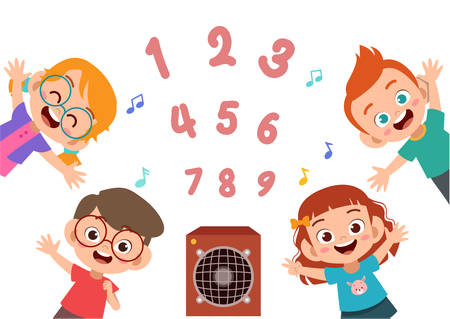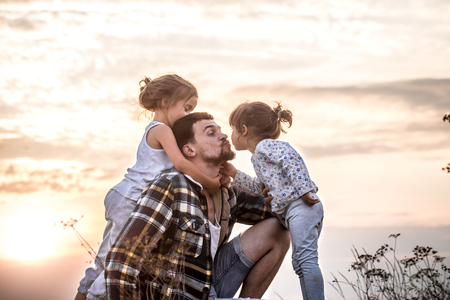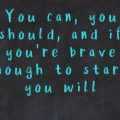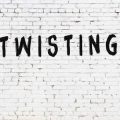Understanding Zodiac Compatibility Across Cultures
America is a melting pot of cultures, and this diversity shines through even in the way people view zodiac signs and compatibility. From the East Coast to the West Coast, and in communities with roots from all over the world, how families interpret zodiac compatibility can be surprisingly different. Lets take a closer look at how various American communities approach zodiac signs and what this means for multicultural families.
Western vs. Eastern Zodiac Traditions
Most Americans are familiar with the Western zodiac—Aries, Taurus, Gemini, and so on—based on birth dates within the solar calendar. But many families in America also honor other systems, such as the Chinese zodiac or Vedic astrology from India. These traditions bring their own unique interpretations and beliefs about compatibility.
| Zodiac System | Main Signs | Compatibility Focus | Common U.S. Communities |
|---|---|---|---|
| Western (Sun Signs) | Aries-Pisces (12 signs) | Elemental harmony (Fire, Earth, Air, Water) | General American population |
| Chinese Zodiac | Rat-Pig (12 animals) | Animal pairings, Yin-Yang balance | Chinese-American, East Asian communities |
| Vedic Astrology (Jyotish) | Rashi (12 signs), Nakshatras (27 constellations) | Mental/emotional traits, planetary periods | Indian-American communities |
Cultural Interpretations of Compatibility
In some families, zodiac compatibility is a fun conversation starter or a lighthearted party game. In others, it plays a serious role in decisions about relationships and marriage. For example:
- Latino Families: Many embrace both Western astrology and native traditions, blending them into family celebrations.
- African-American Communities: Interest in astrology is often tied to pop culture and social media trends.
- Asian-American Families: Chinese New Year and matchmaking often involve checking zodiac animal compatibility before big life events.
- Interfaith or Multiracial Families: Members might compare multiple systems—sometimes mixing Western sun signs with Eastern animal years for a broader perspective.
The Role of Language and Communication
The way people talk about zodiacs can reflect cultural values too. Some use direct language—“We’re a perfect match!” Others may be more cautious or see compatibility as just one piece of the puzzle when building relationships. This makes talking about astrology in multicultural American families an opportunity for deeper understanding and connection.
2. Common Challenges in Multicultural Zodiac Matches
When families or couples come from different cultural backgrounds, their views on astrology and zodiac compatibility can vary a lot. In the United States, where multicultural families are common, these differences can sometimes lead to misunderstandings or conflicts. Here’s a look at some of the most typical challenges that multicultural American families face when it comes to zodiac compatibility.
Diverse Beliefs About Astrology
Not everyone in America believes in astrology, and within multicultural families, there might be even wider gaps. For example, one partner’s family might see zodiac signs as fun and light-hearted, while another might take them very seriously for making decisions about marriage or raising children.
| Cultural Background | Common View on Astrology | Possible Challenge |
|---|---|---|
| East Asian (e.g., Chinese) | Zodiac is deeply rooted and linked to tradition (e.g., Lunar New Year, marriage) | Expectations around compatibility may affect family approval |
| American Mainstream | Zodiac seen as entertainment or for personal insight | Might not understand why its so important to others |
| South Asian (e.g., Indian) | Astrology often used for matchmaking and life planning | Tension if other partner doesn’t want to follow traditions |
| Latin American | Zodiac mixed with folk beliefs and Catholicism, sometimes taken seriously | Differing levels of belief between generations or with non-Latino partners |
Communication Gaps and Misunderstandings
When people have different beliefs about the zodiac, it can make communication tricky. For example, one family member might feel dismissed if another laughs off their concerns about astrological compatibility. This can lead to hurt feelings or even arguments during important life events like weddings or baby naming.
Example Situations:
- Partner A: Wants to choose a wedding date based on astrological advice.
- Partner B: Feels frustrated because they don’t believe in astrology and want a practical date.
- Their Families: May pressure the couple from both sides, leading to more stress.
Balancing Traditions and Modern Perspectives
In many multicultural American families, younger generations may be more flexible or less invested in astrology than their parents or grandparents. This generational gap can cause disagreements about what traditions to keep and which ones to let go of.
| Generation | Typical Attitude Toward Zodiac Compatibility |
|---|---|
| Younger (Millennials/Gen Z) | Might see astrology as just for fun or self-reflection; open to blending cultures |
| Older (Parents/Grandparents) | Tend to value traditional astrological practices; may insist on following them strictly |
Main Takeaway:
The main challenge for multicultural American families is finding a balance that respects everyones beliefs without causing unnecessary conflict. Open-mindedness and good communication are key when navigating these differences about zodiac compatibility.

3. Blending Traditions: Zodiac Beliefs in Modern American Households
In multicultural American families, traditions from many parts of the world come together. This fusion is especially visible when it comes to zodiac beliefs and astrology. Parents might come from different cultural backgrounds—one may believe in the Chinese zodiac, while another follows Western astrology. How do these households blend these beliefs, and what does it look like in everyday family life?
Fusing Zodiac Systems at Home
Families often choose to celebrate both sets of traditions, making their own unique mix. For example, a family with one Chinese-American parent and one Mexican-American parent might discuss both the animal signs from the Chinese zodiac and the horoscopes of Western astrology during birthdays or New Year’s celebrations. This blending helps children feel connected to all sides of their heritage.
| Zodiac System | Main Features | Common Family Practices |
|---|---|---|
| Western Astrology | 12 sun signs based on birth month and date | Reading horoscopes, checking compatibility for relationships, birthday party themes |
| Chinese Zodiac | 12 animal signs based on birth year | Celebrating Lunar New Year, special foods or gifts for each animal year, storytelling about zodiac legends |
| Other Cultural Zodiacs (e.g., Vedic, Mayan) | Varied systems based on local traditions | Festivals, naming ceremonies, fortune-telling at family gatherings |
Adapting Traditions for American Life
Many multicultural families adapt these practices to fit American culture and busy lifestyles. Instead of big ceremonies, families might have small rituals at home—like sharing favorite zodiac facts or watching movies about astrological signs together. Some parents use zodiac stories as bedtime tales, mixing fun with tradition.
Bridging Generations and Cultures
Younger family members may be more familiar with social media horoscopes or astrology apps popular in the U.S., while grandparents might stick to traditional methods like reading the lunar calendar or consulting an elder. Families often find creative ways to bridge these gaps—maybe by showing elders how to use a horoscope app or by teaching kids traditional festival songs.
Cultural Respect and Open Communication
The key for many households is respect for everyone’s beliefs. Open conversations help children understand why certain traditions are important, even if they don’t personally follow every custom. This approach not only keeps family ties strong but also teaches kids about diversity and acceptance—a true reflection of modern American values.
4. Practical Insights: Communication and Respect in Diverse Families
When it comes to zodiac compatibility, multicultural American families often encounter a wide range of beliefs and traditions. Some family members may place great importance on astrological signs, while others may see them as just for fun. This difference can lead to misunderstandings or even conflict, especially when cultures and generations mix under one roof. Here’s how families can build better understanding and communication when zodiac perspectives vary.
Understanding Each Family Member’s View
The first step is recognizing that everyone has their own relationship with astrology based on their background. For example, a grandparent from China might follow the Chinese zodiac closely, while a teen raised in the U.S. might be more interested in Western horoscopes—or not care about zodiacs at all. Respecting these differences helps everyone feel heard and valued.
Common Zodiac Attitudes in Multicultural Families
| Family Member | Background | Attitude Toward Zodiac Signs |
|---|---|---|
| Grandparent | Chinese-American | Takes Chinese zodiac very seriously; uses it for major decisions |
| Parent | Latino-American | Might enjoy reading horoscopes but doesn’t base choices on them |
| Teenager | Born in the U.S. | Loves sharing zodiac memes, sees it as entertainment only |
| Sibling-in-law | No astrology tradition | Skeptical or uninterested in zodiacs altogether |
Tips for Fostering Open Communication
- Create Safe Spaces: Encourage each person to share their views on zodiac signs without fear of judgment. Family meetings or casual chats over dinner can work well.
- Ask Questions: Instead of dismissing someone’s beliefs, ask about their experiences and why certain zodiac traditions are important to them.
- Avoid Stereotyping: Remind everyone that zodiacs are just one part of someone’s identity. Don’t make assumptions based on star signs alone.
- Celebrate Differences: Use special occasions—like Lunar New Year or birthdays—to explore how different cultures view astrology. This can become a fun learning experience for the whole family.
- Set Boundaries: If some members don’t want to discuss or participate in zodiac-based activities, respect their wishes and find ways to include them comfortably.
Sample Conversation Starters for Families
| If You’re Curious… | If You Don’t Believe… |
|---|---|
| “Can you tell me more about your zodiac sign’s meaning?” | “I appreciate your interest, but I prefer not to base decisions on astrology.” |
| “How does your culture celebrate zodiac traditions?” | “I’m happy to join the celebration, even if I don’t follow the tradition myself.” |
| “What’s your favorite zodiac trait about yourself?” | “It’s fun to hear about these stories, even if I see things differently.” |
The Role of Respect in Building Harmony
Diverse families thrive when respect is at the core of every interaction. Whether someone is passionate about their horoscope or indifferent toward zodiacs, acknowledging each other’s feelings goes a long way. Remember, every viewpoint brings something unique to the table—and that’s what makes multicultural American families so special.
5. Looking Forward: Evolving Views on Astrology in the Multicultural US
As America becomes increasingly multicultural, the way people view zodiac compatibility is changing. Family backgrounds, traditions, and generational attitudes all play a role in how astrology is interpreted and used within households that blend different cultures.
Generational Shifts in Zodiac Beliefs
Different generations in the US approach astrology in unique ways. Younger Americans, especially Gen Z and Millennials, often see zodiac compatibility as a fun way to connect with others or express identity, while older generations may be more skeptical or tied to traditional interpretations from their cultural heritage. Here’s a quick look at how various age groups view zodiac compatibility:
| Generation | General Attitude Toward Zodiac Compatibility |
|---|---|
| Gen Z (born 1997-2012) | Open-minded, uses astrology for self-expression and social connection |
| Millennials (born 1981-1996) | Curious and experimental, blends traditional beliefs with modern trends |
| Gen X (born 1965-1980) | Cautiously interested, often influenced by both pop culture and family traditions |
| Baby Boomers (born 1946-1964) | Skeptical or rooted in specific cultural perspectives on astrology |
Multicultural Influences on Compatibility Views
American families today come from diverse backgrounds—Latin American, Asian, African, European, and more. Each culture has its own astrological traditions and values. For example, Chinese zodiac signs are important in some families, while others may follow Western astrology or even blend both systems. This mix can lead to new interpretations of compatibility and spark meaningful conversations about relationships within multicultural families.
Popular Trends Shaping Modern Astrology
- Social Media Influence: Platforms like TikTok and Instagram make zodiac content more accessible and trendy among younger Americans.
- Meme Culture: Sharing zodiac memes helps break down barriers and makes astrology relatable across cultures.
- Hybrid Practices: Some families merge traditions—celebrating both Lunar New Year horoscopes and Western sun sign birthdays.
- Mental Health Awareness: People use astrology as a tool for self-reflection and emotional support, especially in times of stress.
The Ongoing Conversation
The evolving views on astrology reflect broader changes happening in American society. As multicultural families continue to grow, their approaches to zodiac compatibility become even more creative and inclusive. Whether it’s used as a conversation starter at family dinners or as a bonding tool between generations, astrology remains a dynamic part of American culture—constantly adapting to new influences while honoring old traditions.


